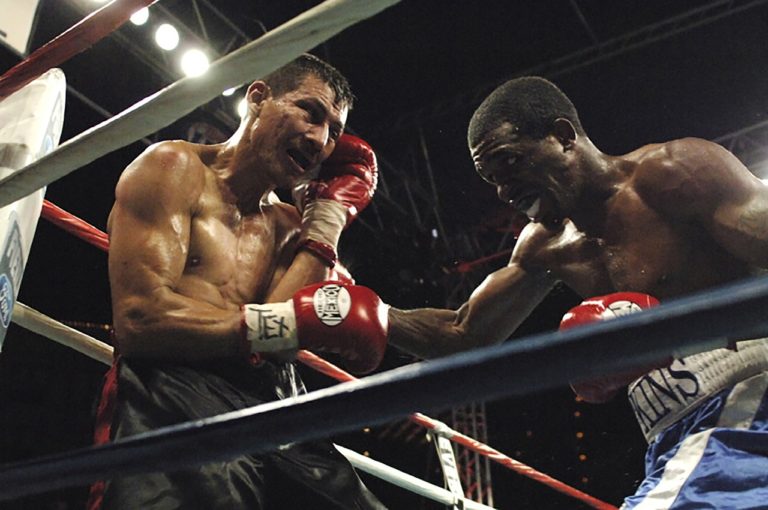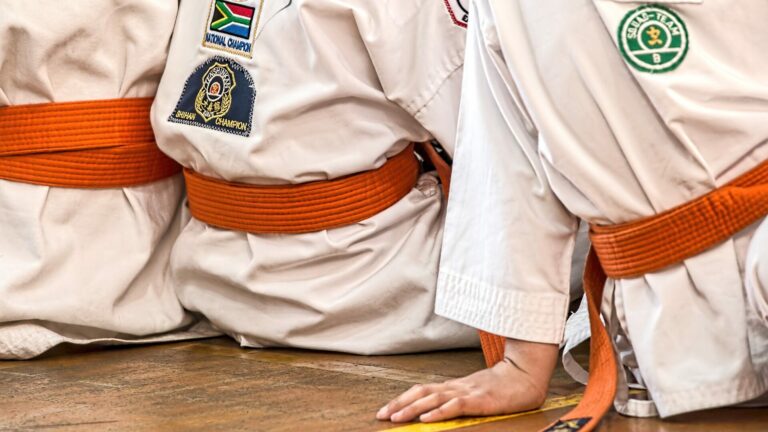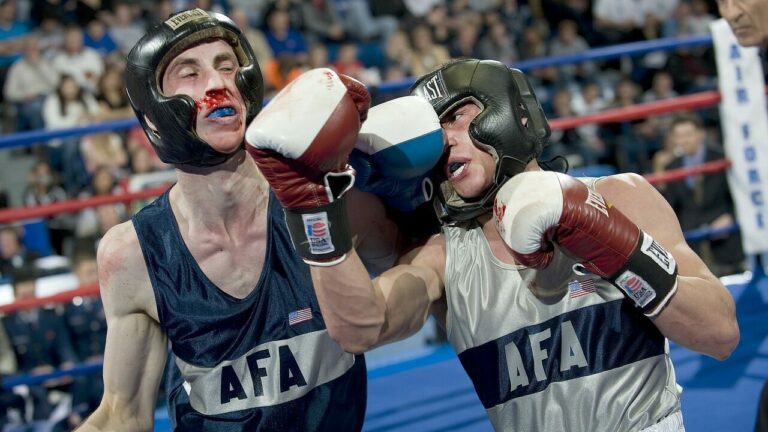How to Stay Calm and Composed when Boxing
For a lot of new boxers, fear can be overwhelming during sparing, especially when you’re caught in a brawl. The rush of adrenaline levels spiking can result in sheer panic, often causing new boxers to run, drop their guard, or swing in a wild uncoordinated fashion. If you’re experiencing anything like this, just remember it is completely normal, the pressure of sparring as a beginner is immense, especially if you’re sparring partner has a considerable amount more experience.
Get comfortable
The trick is to get comfortable when you’re sparring for the first time, you’ll probably be stiff and agitated, reacting a hundred times to every detail. Why? Because you aren’t comfortable. The more time you spend sparring, the more relaxed you will get to that level of pressure and you will notice the difference, you’ll start landing clean punches with correct from, you won’t be taking wild risks, and you won’t be curling up in the corner when your partner starts to bring some pressure to you. That fight or flight response won’t be eliminated completely but it will be controlled.
For some people, the hardest part about boxing is the mental barriers, and for good reason. Boxing is all about mindset, if you don’t have the right mindset in the ring, you won’t perform to your best abilities regardless of how much you perfected your technique and skills.
What a lot of new boxers suffer from is the fear of getting hit, which is understandable, anyone who’s taken clean shots will know the feeling of being dazed after getting caught, and sometimes after a new boxer tastes a clean punch, they become scared. This leads to them constantly fighting on the back-foot with their chin in the air which is not only a poor strategy but dangerous. Like anything, this is purely down to practice, spend enough time sparring with a good coach, and its not hard to program this fear out of your system.

However, let’s say you decide to have a match, the pressure and the stakes will be higher, so inevitably it will be harder to stay calm during an actual match, but the more rounds you get in the better because then you’ll be able to adjust to the situation.
Controlling fear
A certain amount of fear is natural, it protects us and stops us from taking rash or stupid decisions. However, despite how much fear can influence you in the ring, you cannot let it control you. Despite what some people may say, a certain mentality is required when boxing, it is a combat sport and while it actually requires more brain than brawn, you have to be willing to engage.
Look at it this way, if you try something different in sparring and it doesn’t work, so what? Do you lose a session? There is no winning or losing in the gym, only training.
So, take a deep breath and just go in and have some fun. You’ll be much more effective if you’re having fun and actually practicing than being tense and throwing your all into every punch.
Control your breathing
Ever noticed that boxers make a strange hissing noise or shout when they throw a punch? Well, that’s actually to let the air out. See, when you’re boxing it can be difficult to breathe normally as you are using much more energy than normal in erratic patterns. That’s why some new boxers get tired very quickly because they aren’t letting the air out, instead, they are bottling it all up which exhausts them quite quickly and then they start to panic.
So before you spar, take deep breathes, clear your lungs, and keep it controlled. An excellent way to master this is by implementing it into your practice, for instance, whenever you’re hitting the heavy bag or pads, make sure to push the air out for each punch and you’ll notice the difference.
Energy management
One of the worst types of panic you’ll see in combat sports is when a fighter uses up his energy trying to take his opponent out in the early rounds. Mayweather vs McGregor in 2017 is a perfect example of this, the experience is obviously incomparable but its still interesting to see how Mayweather executed his game plan. He let the younger, physically stronger, and more powerful McGregor take the early rounds, mainly playing defense and taking the shots on the shoulders and gloves. He then started throwing body punches as McGregor was starting to slow down, Mayweather then picked up the pace and started landing big right hands on McGregor who at this point was completely exhausted. Eventually, this got Mayweather the stoppage in the 10th round, not from power, but from fatigue.
So what does this show? It showed that Mayweather was more efficient with his punches and reserved his energy for when he needed it. If you go out guns blazing in the first round, you could get an early stoppage but you could also just waste energy, and when you have no energy and then your opponent is putting pressure on you, its easy to lose composure and make reckless decisions and errors.
Rounds
If you’re new to sparring, make sure you implement rounds instead of just sparring continuously. This will get you accustomed to real bouts and will let you reflect in between sparring. A 1-minute break is what professional boxers are permitted in between rounds but if you’re new you may want to take a little longer.
In the time between rounds, you want to focus on controlling your breathing again and think about what happened in the previous round and what can you improve on. For instance, was there a shot that you were repeatedly getting caught with? Where were you having success? How can you set up better shots?
This is the structure that professional boxers use for a full 12 round fight:
| ROUND 1 |
| BREAK |
| ROUND 2 |
| BREAK |
| ROUND 3 |
| BREAK |
| ROUND 4 |
| BREAK |
| ROUND 5 |
| BREAK |
| ROUND 6 |
| BREAK |
| ROUND 7 |
| BREAK |
| ROUND 8 |
| BREAK |
| ROUND 9 |
| BREAK |
| ROUND 10 |
| BREAK |
| ROUND 11 |
| BREAK |
| ROUND 12 |
Frankly, this is far too much for new fighters but if you take the same structure and apply it to a smaller scale, it makes for an excellent sparring session:
| ROUND 1 |
| BREAK |
| ROUND 2 |
| BREAK |
| ROUND 3 |
| BREAK |
| ROUND 3 |
| BREAK |
| ROUND 4 |
Sparring partners
If you’re getting into boxing, make sure that whoever you’re sparring with is sensible and knows what they are doing. It’s not ideal to spar a beginner if you are new, because you won’t be able to learn anything from them and they won’t be able to learn anything from you, sparring between beginners usually results in both boxers being nervous and staying away from each other, other both of them attacking relentlessly without any form or technique.
So its preferable to go with a sparring partner who has some experience so you can pick up a few things. The next thing you want to ensure is that your sparring partner is responsible, in some gyms there will be fighters who always spar hard with everyone. This can be good practice when you have more experience but as a beginner, this isn’t the best option. Fighters like this will just bully you around the ring and they won’t give you any time to adjust. Essentially, they just want to beat up anyone they can! So go with some who’s experienced but is also a good teacher and knows how to handle beginners.







